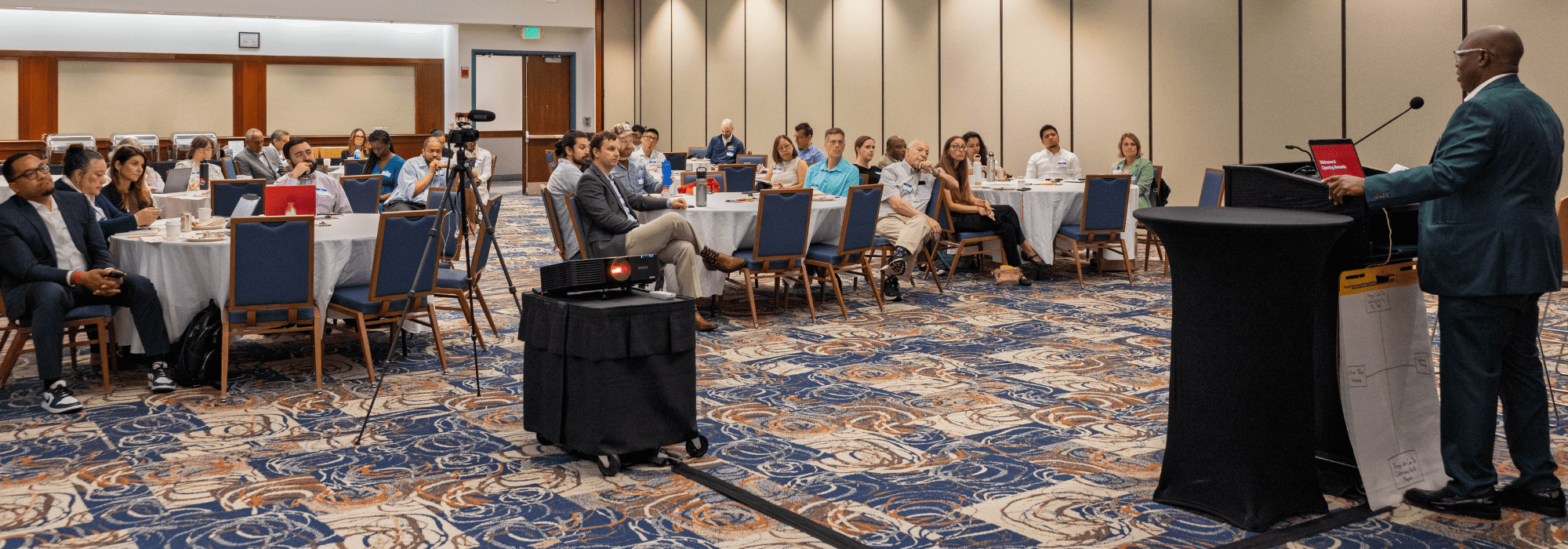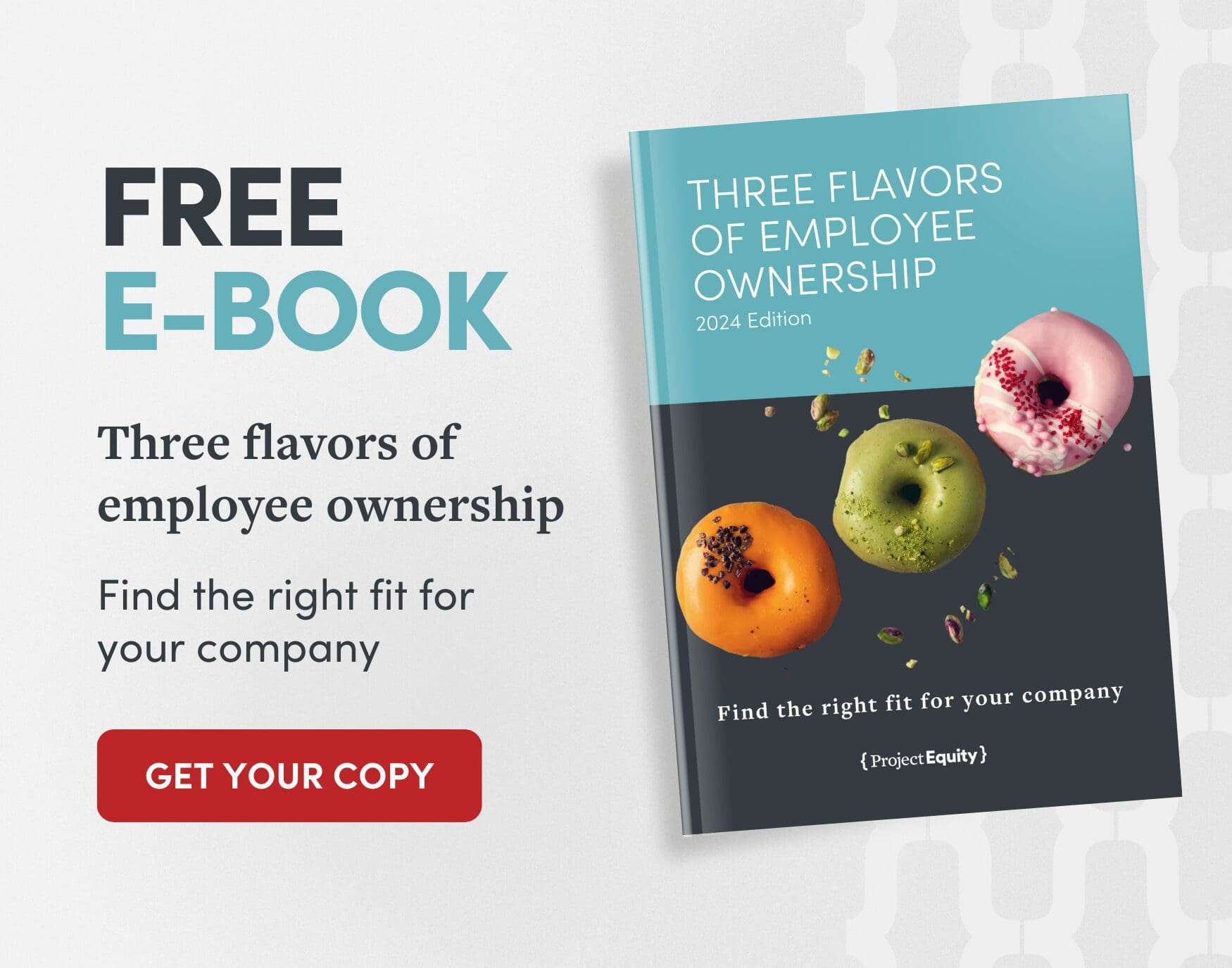Unlocking the power of employee ownership in Montgomery County
- Jennifer Bryant
On July 17, 2025, Project Equity convened more than 40 leaders from across Montgomery County for a dynamic in-person Employee Ownership Roundtable at the Universities at Shady Grove. Attendees included representatives from local government, small business support organizations, universities, economic and workforce development, capital providers, and others committed to building a more inclusive economy.
This event was hosted in partnership with The J. Willard and Alice S. Marriott Foundation, Greater Washington Community Foundation, Impact Silver Spring, Montgomery County, Maryland, Stratus Business Advisors, and WorkSource Montgomery.
The Roundtable kicked off with a welcome from Anand Dholakia of The J. Willard and Alice S. Marriott Foundation and opening remarks from Evan Edwards, CEO of Project Equity.
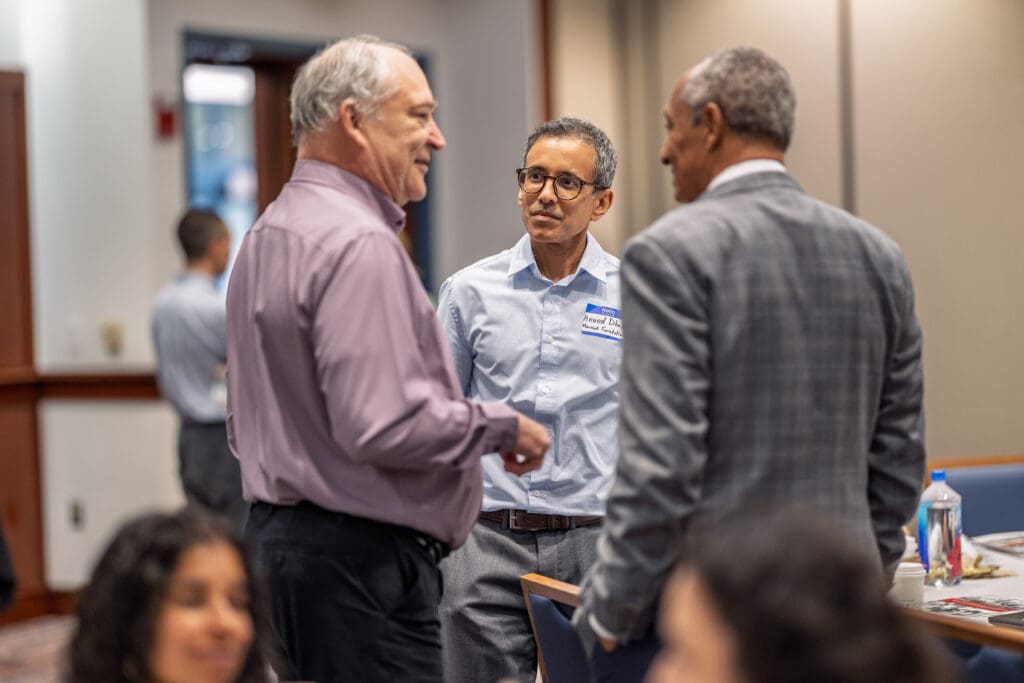
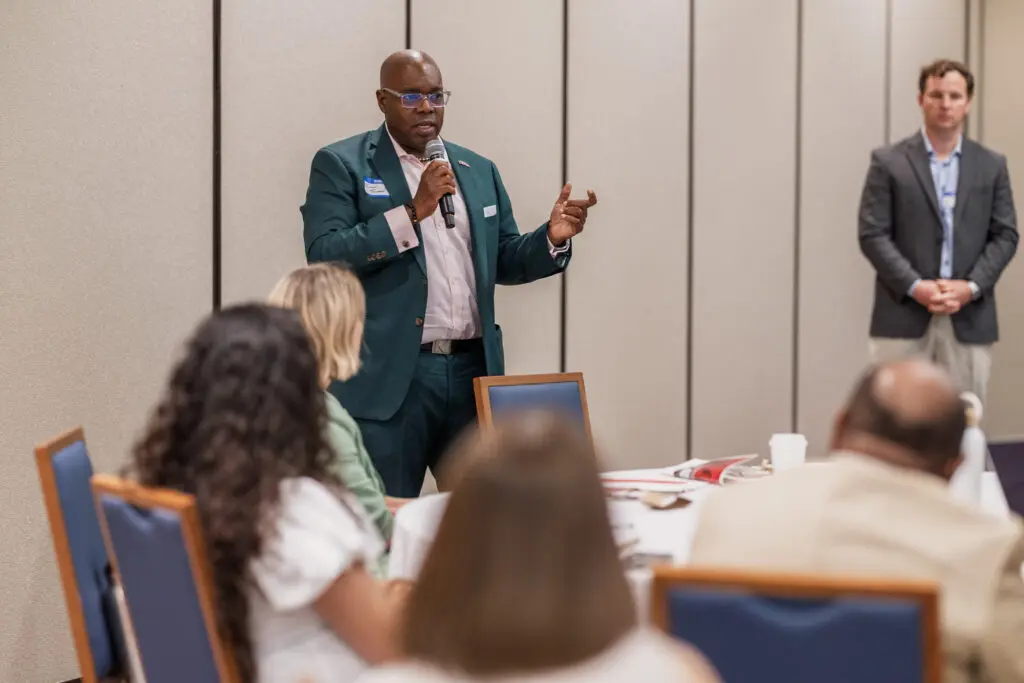
Later in the morning, Montgomery County Executive Marc Elrich offered remarks highlighting the County’s support for employee ownership. He shared a personal story about his early involvement with a Maryland food cooperative and reflected on how that experience shaped his lifelong belief in shared ownership, worker voice, and economic justice. His presence signaled meaningful local government interest in advancing employee ownership in the County.
A highlight of the event was a powerful panel discussion featuring three local employee-owned businesses. Moderated by Sam Brownell of Stratus Business Advisors, the panel included:
- Francisco Benavides, a worker-owner from Dulce Hogar Cleaning Cooperative
- Jeff Stottlemyer, a worker-owner from Swamp Rose Co-op, based in Montgomery County
- Craig Smith, CEO of The Cool Hardware Company, which operates employee-owned hardware stores across the region
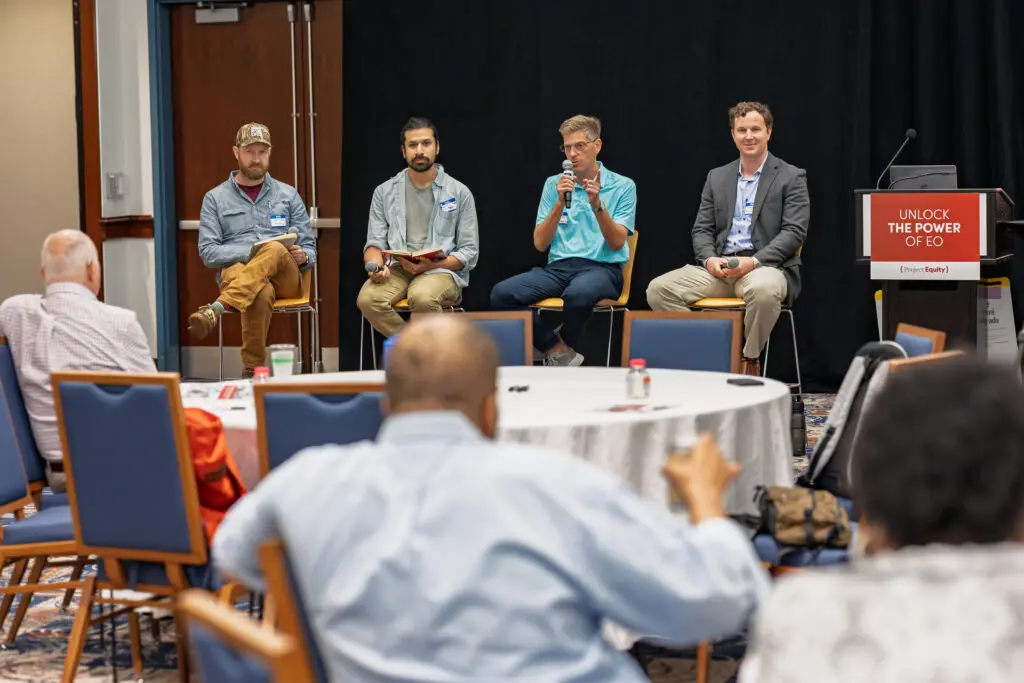
Throughout the panel and broader event, attendees were introduced to the three most common models of broad-based employee ownership: worker-owned cooperatives, Employee Stock Ownership Plans (ESOPs), and Employee Ownership Trusts (EOTs). We explored and discussed how these structures can be adapted to meet the needs of local businesses.
In a midday session titled “Unlocking the Power of Employee Ownership in Montgomery County,” Project Equity’s Tyler Rivera shared case studies from Saint Paul, Los Angeles, and Chicago: three cities that have made significant investments in building local employee ownership ecosystems. The presentation emphasized the importance of cross-sector collaboration, long-term investment, and tailoring strategies to local context. These insights laid the groundwork for the afternoon sessions and helped participants think creatively about how Montgomery County can chart its own course.
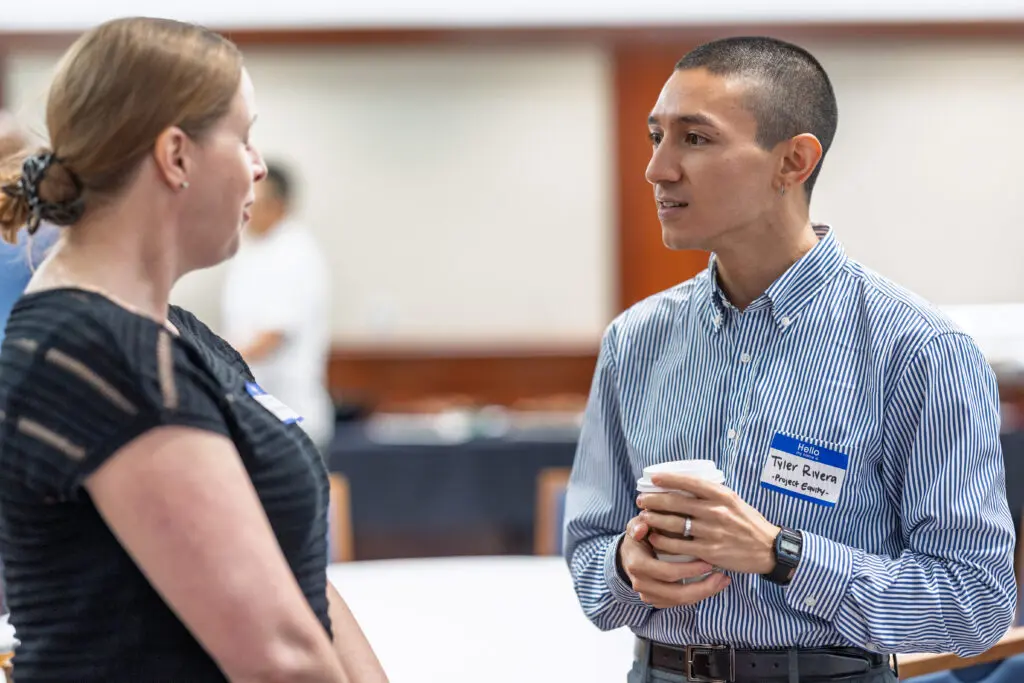
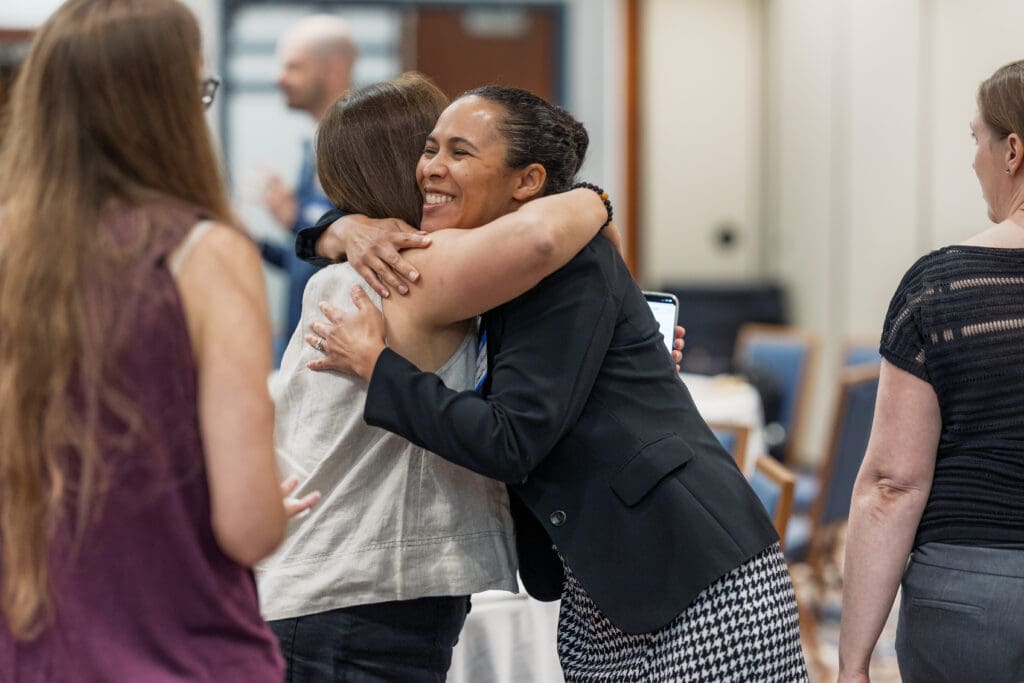
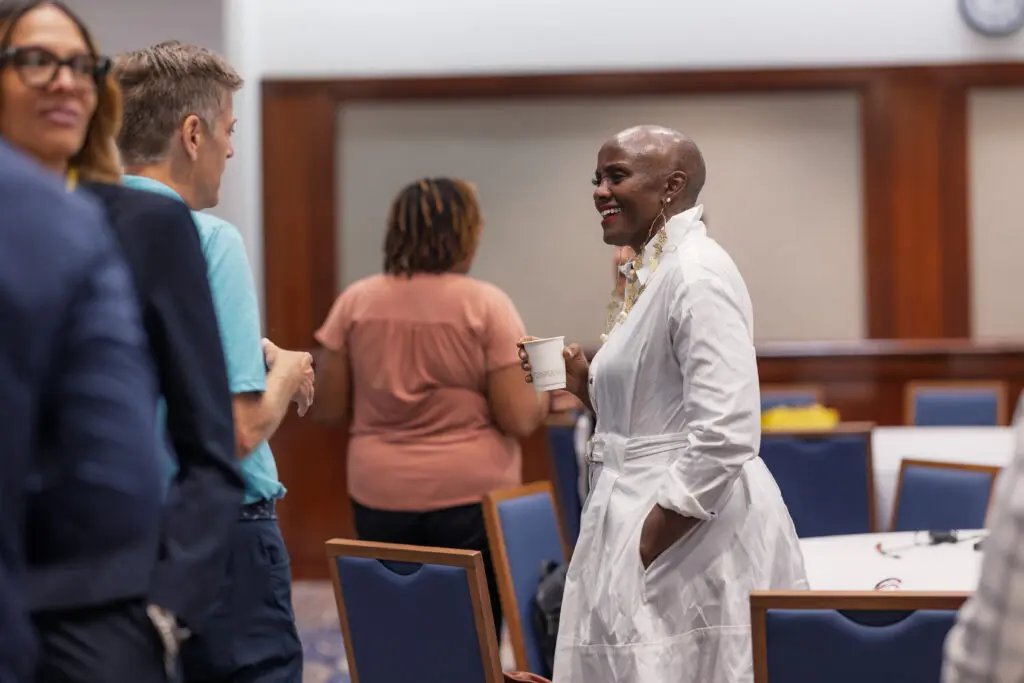
In the afternoon, attendees participated in interactive roundtable discussions and an ecosystem activation session. Participants reflected on the role their organizations can play in the employee ownership ecosystem as champions, advisors, technical assistance providers, capital providers, or anchors. They also identified both individual and collective actions to move the work forward.
Ideas ranged from hosting educational workshops and adding employee ownership to business succession conversations, to advocating for EO-friendly public policy and co-hosting future convenings. The level of engagement and collaboration was inspiring and demonstrated a shared commitment to advancing employee ownership locally.
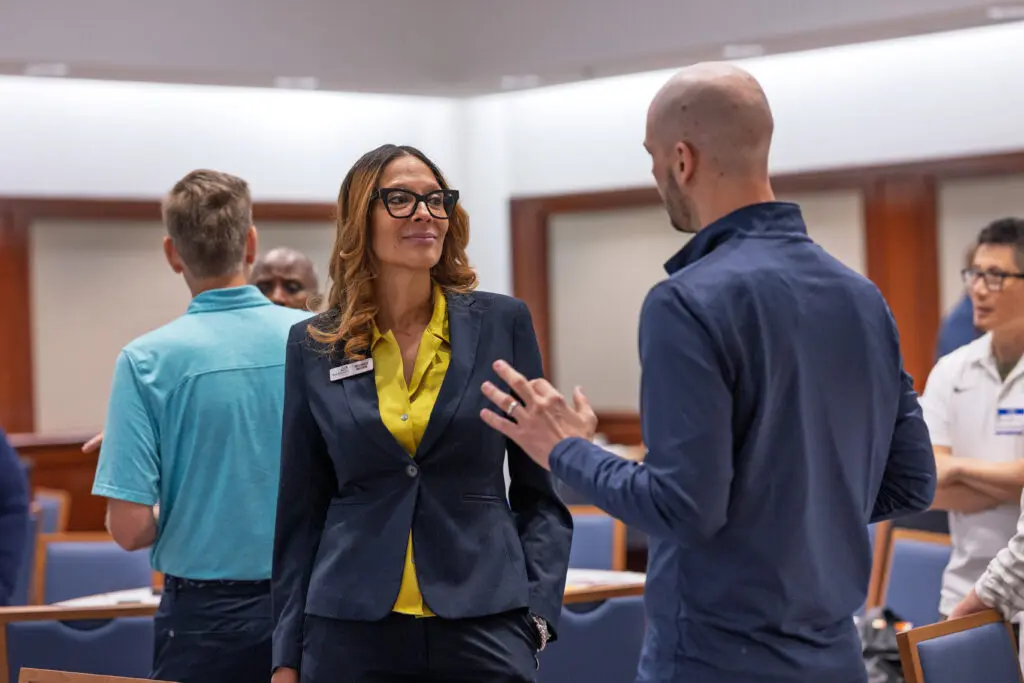
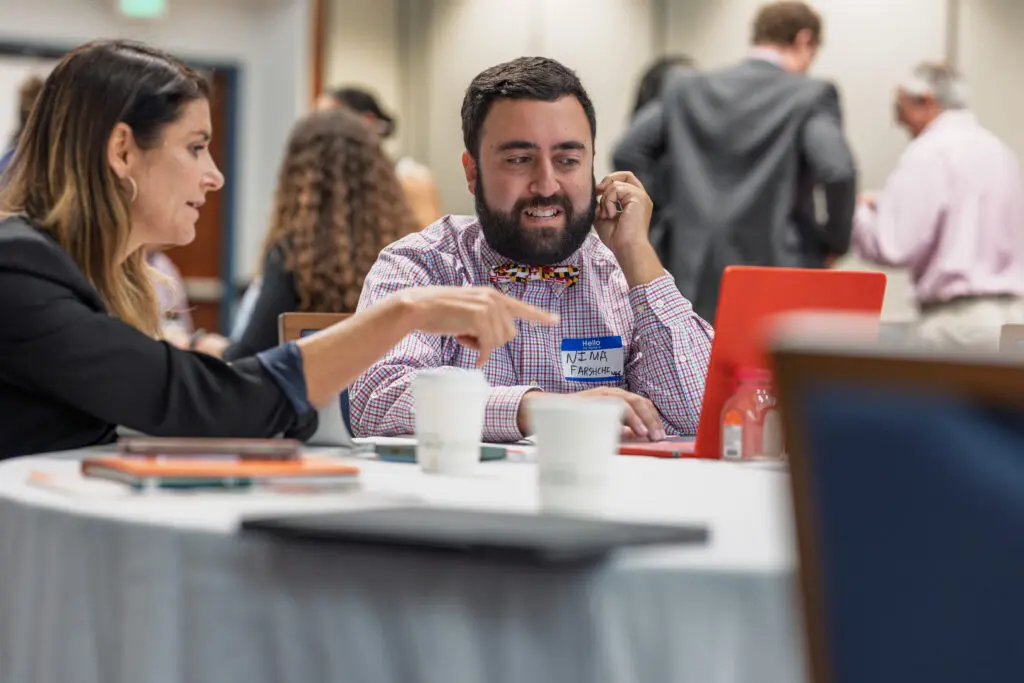
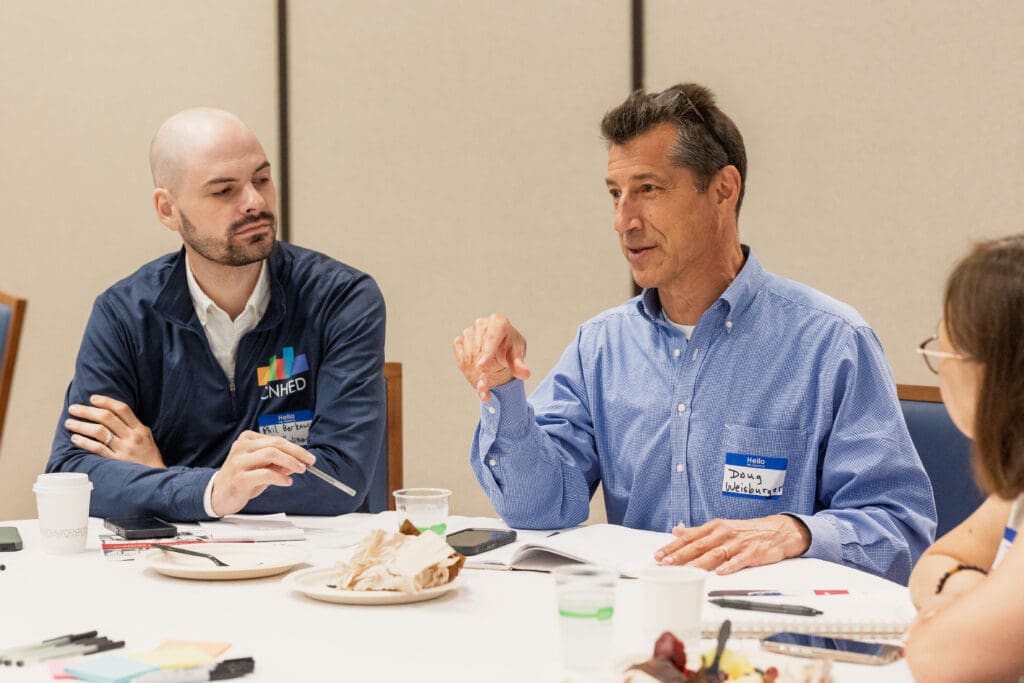
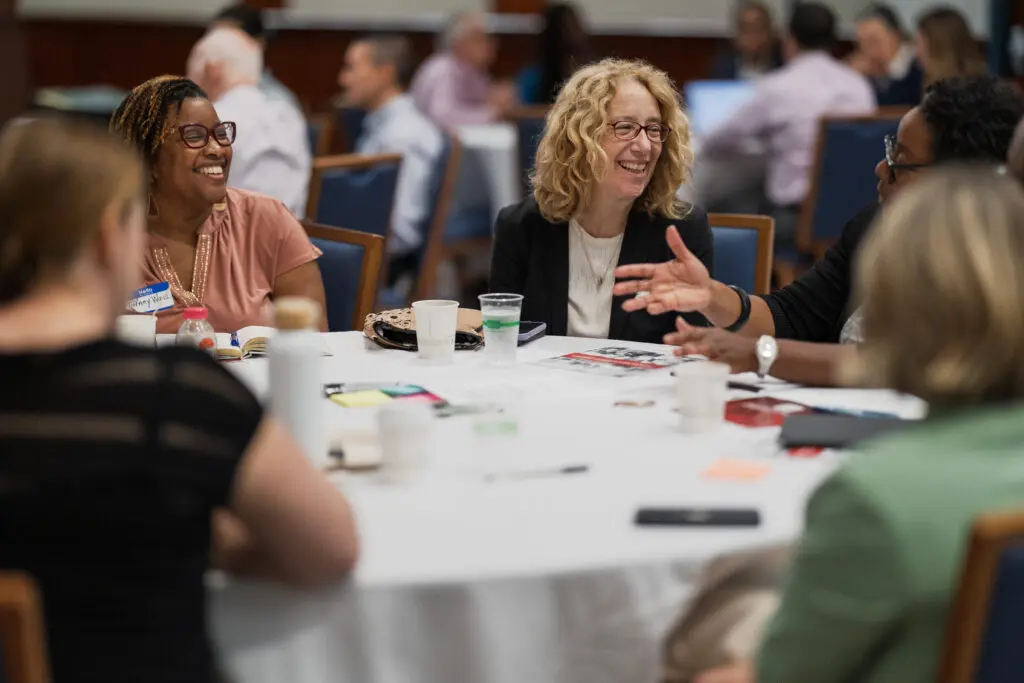
What’s next?
The Montgomery County Roundtable was just the beginning. Project Equity will continue to support ecosystem partners by offering:
- Free 1-on-1 consultations for local businesses exploring employee ownership.
- Educational events and workshops open to business owners and ecosystem partners.
- Ongoing convenings and resources to strengthen the local EO ecosystem.
We invite you to join us in this effort. Whether you’re a business owner, nonprofit, business advisor, economic development leader, funder, or community advocate, you have a role to play in unlocking the power of employee ownership in Montgomery County.
To learn more or get involved, check out what a thriving EO ecosystem looks like or access our toolkit for local EO ecosystem partners. Together, we can create a more inclusive, resilient economy in Montgomery County.
About the author
For more than a decade, Jennifer has worked at the local, regional, and national level to advance employee ownership as a wealth-building strategy for low and moderate income workers. Prior to joining the Project Equity team, she led the development and launch of the Greater Washington Center for Employee Ownership. As the Program Manager for Ecosystem Development at Project Equity, Jennifer maps local stakeholders, does direct outreach to raise awareness of employee ownership, and organizes regional convenings.

Article details
Audience
Topic
Not applicable
